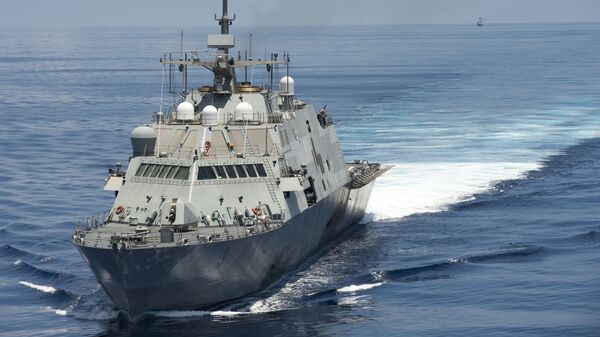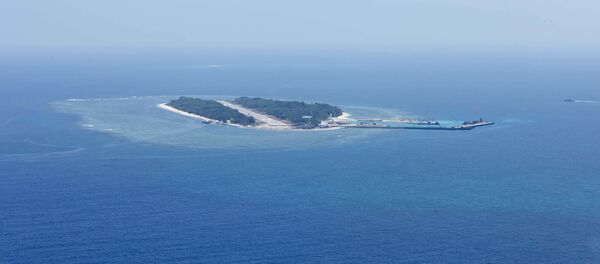Chinese President Xi Jinping said that as long as both the parties resolve differences and sensitive issues on the basis of mutual respect and equality, relations between China and the United States can avoid serious complications.
Around the same time, Asian security summit Shangri-La Dialogue was taking place in Singapore where US Defense Minister, Ashton Carter, accused China of “expansive and unprecedented action” in the South China Sea.
According to Carter, China’s steps to create artificial areas in some parts of the South China Sea threaten security in the Asia-Pacific region.
While US Secretary of Defense acknowledged that other states also engage in such action, however, according to Carter, “Beijing is destabilizing the situation.”
The interaction of two factors, “competition” and “cooperation” in relations between Beijing and Washington is becoming more complicated and multivariate.
Sino-US relations are increasingly associated with changing and difficult to predict dynamics of relations in the region as a whole. The United States is clearly trying to use the difficult situation in the South China Sea region to contain China by strengthening old ties and trying to create new military alliances.
However, US attempts to shift regional burden on its allies can only bring so much results. Opportunities of Japan in terms of military capacity are quite low. South Korea more clearly spends on the policy of maneuvering between US and China.
Most likely, a China containment policy in the foreseeable future will become more burdensome for the United States, given that the Americans have not managed to reduce their involvement in regional security in other regions of the world.
In the next few years, the US may be faced with having to make a difficult choice; their presence in some parts of the world is a priority for them.
However, China is not inclined to engage in open confrontation with the United States and it is possible that the current confrontation between the two powers will resolve naturally.
However, in any case, US interference in the regional conflict could also spark further conflict. In addition, it launches a new phase of an arms race in the region by diverting resources from solving problems of regional integration in order to improve competitiveness of their economies in the global market.




